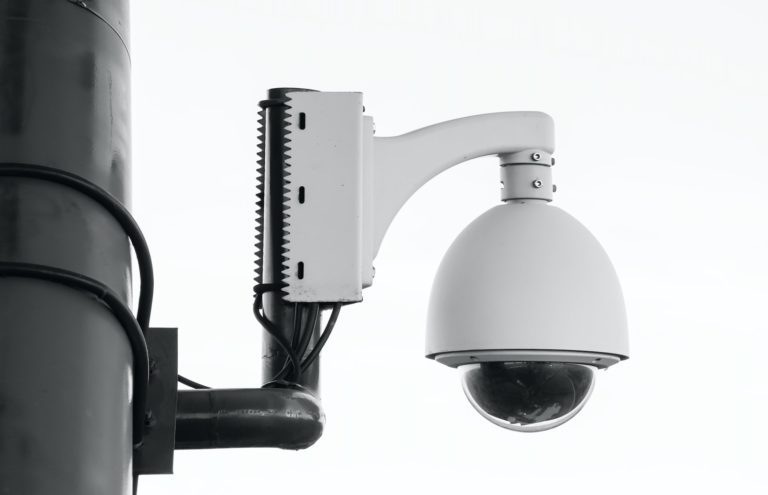Sweethearting, a form of employee theft, can have a significant impact on the finances of retail businesses. In this article, we will explore the various strategies that can be implemented to prevent sweethearting and analyze its potential impact on retail establishments. By leveraging security systems, creating an open dialogue, and training employees, retailers can effectively combat sweethearting and protect their bottom line.
Understanding Sweethearting: Its Impact on Retail Finances
Sweethearting occurs when an employee intentionally provides unauthorized discounts, free items, or undercharges friends or family members during a retail transaction. This practice, although seemingly harmless on the surface, can have far-reaching consequences for businesses in the retail industry.
When an employee engages in sweethearting, they essentially divert revenue from the business by giving away products or services without proper authorization. While the immediate impact may seem negligible, the cumulative effect over time can be significant. Industry estimates suggest that sweethearting can account for up to 5% of total sales loss in a retail setting.
Consider this scenario: a cashier at a popular clothing store decides to offer a 50% discount to her best friend on a purchase worth $100. While this may seem like a generous gesture, it effectively means that the store only receives $50 for an item that should have been sold at full price. If this behavior is repeated multiple times throughout the day, week, or month, the financial impact on the business becomes evident.
These losses can quickly add up over time and have a direct impact on the profitability and sustainability of a retail business. For smaller businesses, in particular, the impact of sweethearting can be even more pronounced, as they often operate on thin profit margins. The loss of revenue due to sweethearting can hinder their ability to cover operational expenses, invest in growth opportunities, or even meet payroll obligations.
Moreover, sweethearting not only affects a business’s financial health but also its reputation. Customers who witness or suspect sweethearting may question the integrity of the business and its employees. This erosion of trust can lead to a decline in customer loyalty, negative word-of-mouth, and ultimately, a decrease in sales.
Recognizing the detrimental effects of sweethearting, retailers are increasingly taking proactive steps to prevent and minimize its occurrence. Implementing robust point-of-sale systems that require manager approval for discounts, conducting regular audits to identify irregularities, and providing comprehensive training to employees on ethical business practices are some of the strategies employed by businesses to combat sweethearting.
Furthermore, fostering a culture of transparency and accountability within the organization can also play a crucial role in preventing sweethearting. By promoting open communication channels and encouraging employees to report any suspicious activities, businesses can create an environment where sweethearting is less likely to occur.
In conclusion, sweethearting may initially appear as a minor act, but its impact on retail finances can be substantial. By understanding the financial implications of sweethearting and implementing preventive measures, businesses can safeguard their profitability, reputation, and long-term sustainability.
Leveraging Security Systems to Combat Sweethearting in Retail Environments
One effective strategy for preventing sweethearting is to implement robust security systems within retail environments. Surveillance cameras strategically placed throughout the store can help deter employees from engaging in sweethearting behaviors. Additionally, video footage can provide concrete evidence if an incident does occur, making it easier to take appropriate action.
But how exactly do these security systems work? Let’s dive deeper into the world of retail surveillance technology.
Modern surveillance systems are equipped with state-of-the-art features that go beyond just capturing video footage. They are designed to detect unusual patterns and identify potentially fraudulent activities. This is made possible through the use of advanced technologies such as artificial intelligence (AI) and machine learning algorithms.
AI-powered monitoring systems can analyze transaction data in real-time, flagging any suspicious behavior that may indicate sweethearting. These systems can detect anomalies in employee behavior, such as excessive voids or discounts, repeated transactions with specific customers, or irregular patterns in sales data.
Furthermore, these surveillance systems can be integrated with point-of-sale (POS) systems, allowing for seamless monitoring and analysis of transaction data. This integration enables retailers to have a comprehensive view of their operations and quickly identify any potential sweethearting incidents.
But it doesn’t stop there. The advancements in surveillance technology have also led to the development of facial recognition systems. These systems can identify employees and customers, further enhancing the security measures in place. By linking employee profiles to the surveillance system, retailers can easily track employee movements and ensure that they are adhering to company policies.
Moreover, the presence of visible surveillance cameras can act as a powerful deterrent. Knowing that they are being monitored, employees are less likely to engage in sweethearting behaviors. This creates an environment of accountability and discourages any attempts at fraudulent activities.
It is important to note that implementing security systems alone is not enough. Retailers must also establish clear policies and procedures regarding sweethearting and communicate them effectively to all employees. Regular training sessions should be conducted to educate employees about the consequences of sweethearting and the importance of maintaining integrity in the workplace.
In conclusion, leveraging security systems in retail environments is a proactive approach to combat sweethearting. These systems not only deter employees from engaging in fraudulent activities but also provide concrete evidence if incidents occur. By embracing the advancements in surveillance technology, retailers can create a culture of accountability and integrity, ensuring the success and profitability of their businesses.
Strategies for Detection and Prevention of Sweethearting: A Retail Guide
Preventing sweethearting requires a multifaceted approach that combines detection and prevention strategies. Implementing regular audits and reconciliations of sales records can help identify discrepancies and potential sweethearting incidents. By thoroughly examining sales data, retailers can gain valuable insights into patterns and trends that may indicate sweethearting activities.
Additionally, it is essential for retailers to establish clear policies and guidelines regarding employee conduct and transactions. These policies should explicitly state the consequences of engaging in sweethearting and outline the expected ethical standards for all employees. By setting clear expectations, retailers can create a culture of accountability and discourage any form of unethical behavior.
Training employees on the importance of ethical behavior and the consequences of sweethearting is crucial. Providing comprehensive training programs that educate employees about the negative impact of sweethearting on the business can help foster a sense of responsibility and integrity. By emphasizing the importance of honesty and integrity in all transactions, retailers can create a strong deterrent against sweethearting.
In addition to regular audits and training, it is vital for retailers to encourage reporting of suspected sweethearting incidents. Establishing a confidential reporting system, such as an anonymous hotline or email, can empower employees to come forward with any concerns or suspicions. By creating a safe and supportive environment for reporting, retailers can effectively address sweethearting incidents and take appropriate action.
- Implement regular audits and reconciliations of sales records.
- Thoroughly examine sales data to identify patterns and trends.
- Establish clear policies and guidelines regarding employee conduct and transactions.
- Outline the consequences of engaging in sweethearting.
- Provide comprehensive training on the importance of ethical behavior.
- Emphasize the negative impact of sweethearting on the business.
- Encourage employees to report suspected sweethearting incidents.
- Establish a confidential reporting system for employees.
Creating an Open Dialogue Around Sweethearting
Open communication between management and employees is essential in preventing sweethearting. By creating a safe and non-punitive environment, employees are more likely to report suspicious activities without fear of retaliation.
Regular team meetings and training sessions can be used as opportunities for management to address the issue of sweethearting, clarify expectations, and reinforce the importance of adherence to company policies. By fostering open dialogue, retailers can raise awareness about sweethearting and ensure that all employees understand the potential consequences.
One effective way to promote open dialogue is by implementing an anonymous reporting system. This system allows employees to report instances of sweethearting or any other unethical behavior without revealing their identity. By guaranteeing anonymity, employees feel more comfortable coming forward with their concerns, knowing that their jobs and relationships within the company will not be jeopardized.
In addition to team meetings and training sessions, management can also organize workshops or seminars specifically focused on addressing sweethearting. These events can provide a platform for employees to openly discuss their experiences and concerns, as well as share best practices for preventing sweethearting. By encouraging active participation and engagement, management can create an environment where employees feel empowered to take a stand against sweethearting.
Furthermore, it is crucial for management to lead by example. When leaders demonstrate a commitment to transparency and open communication, it sets a positive tone for the entire organization. Managers should actively seek feedback from employees, listen to their concerns, and take appropriate action to address any issues related to sweethearting. By being approachable and responsive, management can foster trust and encourage employees to speak up.
Another strategy to promote open dialogue is to establish a dedicated channel for communication, such as a suggestion box or an online forum. This allows employees to share their thoughts, ideas, and concerns related to sweethearting in a convenient and confidential manner. Management can regularly review and respond to these submissions, demonstrating their commitment to addressing sweethearting concerns and valuing employee input.
Moreover, it is important for management to recognize and reward employees who actively contribute to the prevention of sweethearting. This can be done through various means, such as public recognition, monetary incentives, or career advancement opportunities. By acknowledging and appreciating employees’ efforts, management reinforces the importance of open dialogue and encourages others to follow suit.
In conclusion, creating an open dialogue around sweethearting is crucial in preventing and addressing this unethical behavior. By implementing strategies such as anonymous reporting systems, workshops, and dedicated communication channels, management can foster a culture of transparency and encourage employees to report instances of sweethearting without fear of retaliation. Additionally, leading by example, actively seeking feedback, and recognizing employees’ contributions are all essential in promoting open dialogue and preventing sweethearting within the organization.
Training Employees to Prevent Sweethearting
Effective training is a critical component of any comprehensive sweethearting prevention strategy. Retailers should invest in thorough and ongoing training programs that educate employees about the detrimental effects of sweethearting and provide practical techniques to identify and prevent it.
Training sessions can include role-playing scenarios to simulate real-life sweethearting situations. By actively involving employees in these exercises, retailers can enhance their awareness and develop the skills required to counteract sweethearting attempts. Regular reinforcement and refresher courses are also important to ensure that employees remain vigilant over time.
In conclusion, preventing sweethearting in retail requires a comprehensive approach that combines the use of security systems, establishment of clear policies, open dialogue, and effective employee training. By implementing these essential strategies, retailers can minimize sweethearting incidents, protect their finances, and foster an environment of trust and integrity within their organizations.






